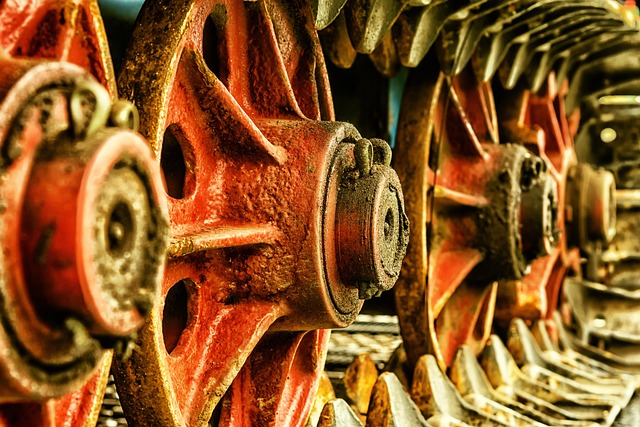Soft dig services, a sustainable approach in construction and conservation, offer non-invasive soil extraction without environmental harm, ideal for urban areas. Utilizing specialized hydraulic excavators and mini shovels, this method minimizes site disruption, noise pollution, and damage to historical artifacts or sensitive ecosystems. Essential for archaeological studies and ecological projects, the right equipment ensures precision, efficiency, and speed while promoting responsible land management. Regular maintenance and calibration of tools are critical for successful, safe, and accurate soft dig operations.
“Reliable equipment is paramount for successful non-invasive excavation projects, ensuring minimal environmental impact while maximizing efficiency. This article delves into the world of soft dig services, exploring the benefits of this eco-friendly approach. We’ll guide you through essential tools and equipment crucial for accurate and safe digging, from advanced sensors to specialized machinery. Learn how choosing the right tools and adhering to best practices can revolutionize your excavation projects.”
Understanding Non-Invasive Excavation and Its Benefits
Non-invasive excavation, also known as soft dig services, is a method that allows for the extraction of soil and underground materials without causing damage to the surrounding environment. This technique has gained significant popularity in various industries due to its numerous advantages. One of the key benefits is minimal site disruption, making it ideal for urban settings where preserving infrastructure and aesthetics is crucial. Unlike traditional excavation methods, soft dig services enable workers to access underground utilities, conduct surveys, or install new systems without the risk of collateral damage.
By employing specialized equipment and techniques, non-invasive excavation ensures safety, efficiency, and environmental sustainability. It reduces the need for heavy machinery, minimizing noise pollution and soil compaction. Moreover, this method helps in preserving historical artifacts and sensitive ecological sites, making it a preferred choice for archaeological studies and ecological conservation projects. The versatility of soft dig services allows for precise and controlled digging, accommodating various project requirements while promoting responsible land management.
Essential Equipment for Soft Dig Services
When it comes to non-invasive excavation, particularly for soft dig services, having the right equipment is paramount. Soft dig services require tools that can efficiently loosen and remove soil without causing damage or disturbing the surrounding area. One essential piece of equipment is the hydraulic excavator, which offers precision and control, allowing operators to dig with minimal impact on the terrain. These machines come in various sizes, making them suitable for different project scales.
Another crucial tool for soft dig services is the mini shovel or mini excavator. Its compact size allows for maneuverability in tight spaces, while its powerful hydraulic system ensures efficient digging and trenching. This equipment is especially useful for tasks like installing utility lines, foundation work, and landscaping projects where precision and minimal soil disturbance are key.
Choosing Reliable Tools for Efficient Projects
When embarking on non-invasive excavation projects, selecting the right tools is paramount for efficient and successful outcomes. Reliable equipment designed for soft dig services ensures minimal disruption to surrounding landscapes, making it an ideal choice for environmentally conscious projects. Investing in high-quality machinery equipped with advanced technology offers several advantages, including increased precision, reduced operational costs, and faster completion times.
Choosing tools that cater specifically to soft dig services allows professionals to navigate challenging terrains and intricate spaces without causing damage. These specialized machines are engineered to deliver consistent performance, ensuring your excavation projects are carried out smoothly and safely. With the right equipment in place, you can expect better control, improved accuracy, and overall enhanced efficiency throughout the entire process.
Best Practices for Maintaining and Calibrating Excavation Equipment
Maintaining and calibrating excavation equipment is paramount for any non-invasive excavation project, ensuring precision and reliability. Regular maintenance checks should be conducted to identify potential issues early on, preventing costly breakdowns. This includes examining components such as blades, sensors, and motors for signs of wear or damage. Replacing worn parts promptly is crucial to maintain the integrity of the equipment and prevent accidents during soft dig services.
Calibration plays a vital role in ensuring accurate excavation data. It involves adjusting the equipment’s settings to match specific project requirements. Regular calibration ensures that measurements are precise, especially when dealing with intricate site layouts or detailed mapping. Proper calibration practices enable operators to confidently gather data, facilitating efficient and effective non-invasive excavation techniques for various soft dig services.
When it comes to non-invasive excavation projects, relying on reliable equipment is paramount for achieving efficient and precise results. By understanding the benefits of soft dig services and investing in high-quality tools, professionals can ensure successful outcomes while minimizing environmental impact. Choosing the right equipment, combined with proper maintenance and calibration, streamlines operations and enhances safety. For those committed to excellence in this field, staying informed about reliable excavation tools is essential for staying ahead in the industry.
